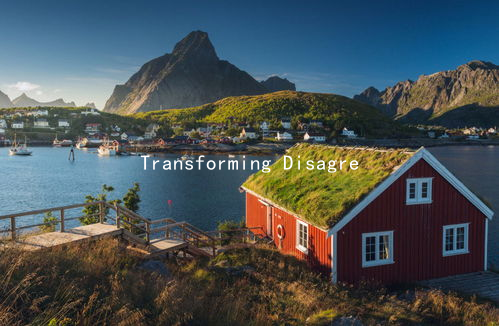Transforming Disagreements into Growth: Embracing Conflict in Your Emotional Tribe
Conflict is an inherent part of any relationship, particularly in romantic partnerships where emotions run deep. Rather than viewing disagreements as negative experiences, we can treat them as opportunities for growth, understanding, and deeper connection. Embracing conflict is essential for building a resilient emotional tribe—those who surround us and support us in our journey of love and intimacy.
When faced with a disagreement, it is crucial to reframe our perspective. Instead of seeing conflict as a threat, consider it a chance to learn more about each other’s values, beliefs, and desires. This shift in mindset can help transform a potentially destructive argument into a constructive dialogue. By approaching disagreements with curiosity rather than defensiveness, you invite collaboration instead of confrontation.
One effective technique for managing conflicts is using “I” statements. This approach allows individuals to express their feelings and needs without sounding accusatory. For example, instead of saying “You always forget our plans,” you might say, “I feel disappointed when our plans change unexpectedly.” This technique not only reduces defensiveness but also encourages partners to take responsibility for their feelings and foster a more empathetic response.
Active listening plays a pivotal role in any conflict resolution. It involves truly hearing what your partner is saying, reflecting on their words, and validating their feelings. By practicing active listening, you demonstrate respect and acknowledgment of their perspective. This process opens the door for honest communication and can diffuse tense situations. When both partners feel heard and understood, it creates a safe space for vulnerability, paving the way for resolution and growth.
Moreover, it’s beneficial to establish ground rules for conflicts. Agreeing on how to approach disagreements—such as avoiding name-calling or raising voices—lays the groundwork for healthier discussions. Setting boundaries can prevent excessive escalation and provide a framework for resolving conflicts peaceably. This agreement can serve as a reminder that the goal is not to ‘win’ the argument but to strengthen the relationship.

In the middle of conflict, emotions can often run high. It’s essential to take a step back when things become overwhelming. A brief pause can allow both partners to collect their thoughts and calm their emotions. During this time, engaging in self-reflection can be invaluable. Consider what triggered your reaction and how you might express your needs more constructively. This practice of introspection not only improves communication but also deepens individual awareness.
Furthermore, conflict can serve as a catalyst for growth. Often, issues arise during disagreements that highlight unmet needs or unresolved concerns. Addressing these underlying issues can lead to significant personal and relational transformation. Embracing uncomfortable conversations about future expectations, fears, and desires can strengthen your emotional foundation and build trust over time.
Lastly, always strive to celebrate the resolution of conflicts. After working through a disagreement, take time to acknowledge the effort both partners put into understanding each other. This celebration reinforces the idea that navigating conflict can lead to greater intimacy and strengthens the emotional bond. Recognizing your growth journey together fosters a sense of accomplishment and unity.
In conclusion, while disagreements are an inevitable part of any relationship, the way we approach them can significantly impact our emotional connections. By transforming conflicts into opportunities for growth, practicing effective communication strategies, and being willing to engage with empathy and understanding, we can build stronger relationships that withstand turmoil. Ultimately, embracing conflict in your emotional tribe is about cultivating a supportive environment where everyone feels valued and understood, thus enhancing both individual and relational growth.





